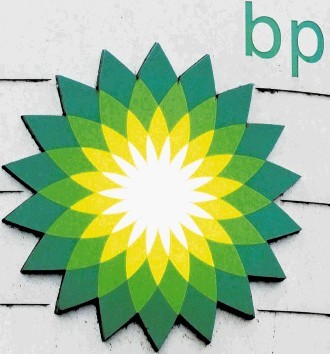
Oil supermajor BP has reported positive first quarter results and is eyeing a material improvement in cash flow in Q2 as projects ramp up.
The firm said it had experienced “robust earnings and cash flow” and that new projects were “on track” as it revealed earnings for the start of 2017.
The upswing was put down to rising oil prices and ongoing cost cutting efforts.
The group said it swung out of the red by trebling replacement cost profits of $1.4 billion (£1.1 billion) for the first quarter against losses of $485 million (£377 million) a year earlier.
A bounce back in oil prices saw Brent crude stand around 58% higher than a year earlier in the first quarter, at around $53.69 a barrel.
BP said major upstream major projects such as the Trinidad onshore compression had started up, while another was in ramp-up, and two more in the works.
The firm also netted $1.7 billion from the divestment of it’s interest in the Shanghai SECCO Petrochemical Company Limited joint venture.
In a statement, chief executive Bob Dudley said: “Our year has started well. BP is focused on the disciplined delivery of our plans.
“First quarter earnings and cash flow were robust.
“We have shown continued operational momentum -it was another strong quarter for the downstream and the first of our seven new upstream major projects has started up, with a further three near completion.
“We expect these to drive a material improvement in operating cash flow from the second half.”
First quarter figures from BP come after it revealed last month it had slashed Mr Dudley’s 2016 pay package by 40% and cut his maximum earnings by $3.7million (£2.9 million) to see off a fresh shareholder rebellion.
Its annual report showed Mr Dudley’s pay package was cut to $11.6 million (£8.5 million) as the group looked to avoid a repeat of last year’s investor revolt, when almost 60% of BP shareholders voted against his 20% pay hike.
BP’s profit for the first quarter was $1,449 million, compared with a loss of $583 million for the same period in 2016.
First quarter operating cash flow, excluding payments related to the Gulf of Mexico Deepwater Horizon spill, amounted to $4.4 billion. Including the settlements from the incident, operating cash flow was $2.1 billion.
The shareholders dividend will remain unchanged at 10 cents per share.
Reported oil and gas production was 3.5mmboe/d in the first quarter, 5% higher than same period in 2016.
The replacement cost profit before interest and tax for the first quarter was $1,256 million, compared with a loss of $1,205 million for the same period in 2016.
The first quarter included a net non-operating charge of $360 million, compared with a net non-operating charge of $355 million for the same period in 2016.
Organic capex for the first quarter was $3.5 billion, compared with $4.5 billion for the same period in 2016.
BP said it expects organic capex to be in the range of $15-17 billion for 2017.
The Gulf of Mexico oil spill pre-tax charge, which predominantly relates to finance costs for the unwinding of discounting effects, was $161 million for the quarter.
Net debt at March 31, 2017, was $38.6 billion, compared with $30.0 billion a year ago.
In the upstream sector, the Trinidad onshore compression project, the first of seven major projects scheduled to start up in 2017, began operation in April.
The Taurus and Libra development of the West Nile Delta project in Egypt is ramping up and Quad 204 in the UK and Juniper in Trinidad & Tobago are also nearing completion.
A third gas discovery in the North Damietta Offshore Concession in the East Nile Delta in Egypt was announced in the quarter and, following completion of BP’s entry into Mauritania and Senegal, exploration drilling in Senegal has begun.
BP’s marketing businesses continue to grow, with retail volumes increasing year-on-year and more than 30 new convenience partnership sites added in the quarter.
BP opened its first retail fuels site in Mexico and has plans to grow the network to around 1,500 sites in the next five years. An agreement has also been signed to form a retail joint venture in Indonesia.
BP expects $4.5-5.5 billion of divestments in 2017, with proceeds weighted towards the second half of the year.
In 2017 to date, BP has reached two agreements to divest mature UK North Sea assets and recently announced the intention to divest its interest in the SECCO petrochemical joint venture in China. Divestment proceeds received in the first quarter were $0.3 billion.
BP’s closest rival, Royal Dutch Shell, is also expected to post a leap in profits when it reports on Thursday.
Recommended for you
